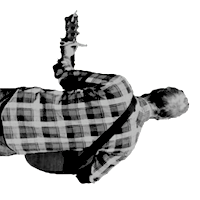This book argues that, in our distracted world, focus is the new IQ. Deep Work means turning off your phone and closing your inbox (and your door) so you can work in a distraction-free environment. Cultivating this regular habit, for hours at a time, is how you find flow and produce great work.
Love and Logic - by Foster Cline and Jim FayA book on parenting that encourages kids to make their own decisions and mistakes so they can learn responsibility.
Radical Acceptance - by Tara BrachEmbracing your life with the heart of a Buddha...
Rapid Software Testing Applied (RSTA) - by James BachMy notes from a three-day intensive course on software testing and rapid learning.
Tools of Critical Thinking - by David A. LevyHow often do we think about how we think? This book explores metathinking and highlights common pitfalls and workarounds.
An Introduction to General Systems Thinking - by Gerald M. WeinbergThis 1975 book grew from Weinberg's popular college course on General Systems Theory. The course didn't fit into any department (perhaps it was too "general"). This book is full of insights, thought experiments and poetic nuggets like "If we want to learn anything, we mustn’t try to learn everything."
How to Win Friends and Influence People - by Dale CarnegieYes, the title sounds evil and manipulative, but hang on a minute! This 1936 classic may be the best self-help book of all time. Help yourself by helping others. This book should be titled "How to be Empathetic" or "How to Communicate Kindly."
The Art of Unix Programming - by Eric S. RaymondUnix was built on virtues of elegance, simplicity and versatility. This book describes Unix coding philosophy in detail and is *probably* only for hackers (prove me wrong non-hackers!). "Constructive laziness is one of the cardinal virtues of the master programmer.” - Raymond
The Art of Mingling - by Jeanne MartinetThis book discusses a topic that has terrified me in the past. “Ultimately, mingling well with others is a way of getting in touch with all that is vibrant and wonderful about life.”
How to Solve It - by George PolyaLife is full of problems. Solving problems can be fun. This classic book teaches us how to solve problems and enjoy the process.
The Life-Changing Magic of Tidying Up - by Marie KondoYou can increase the quality of your life by simplifying your home and possessions.
The Total Money Makeover - by Dave RamseyMost Americans are up to their ears in debt and have little to show for it. Debt is slavery. It's not how much you make but what you do with it. Discipline and budgeting go a long way towards financial freedom and "retiring with dignity."
Chaos: Making a New Science - by James Gleick"Disorder was channeled, it seemed, into some common underlying theme."
The Art of Software Testing - by Glenford J MyersSoftware Testing is a relatively new field. Few people agree on how to do it "right." Some consider this book to be a classic on the subject. It's brief, general and not tied to any particular trend or technology.
Computer HistoryA work in progress. These are my notes from a few books on the history of the computer. "Computers" used to be people who did calculations. We spend countless hours on computers today. What's the back story?
